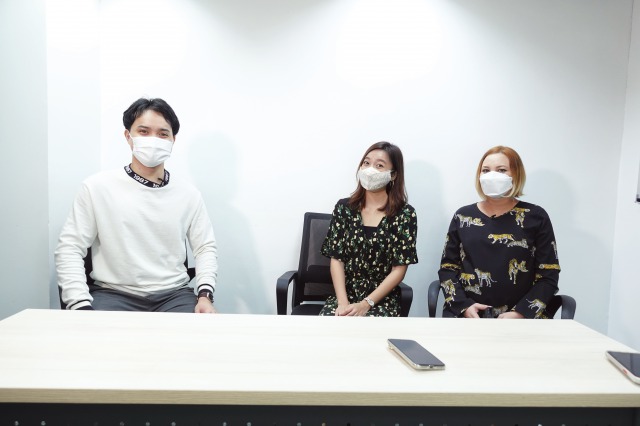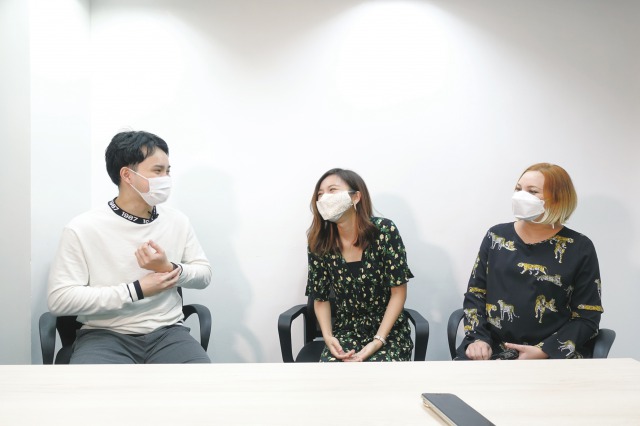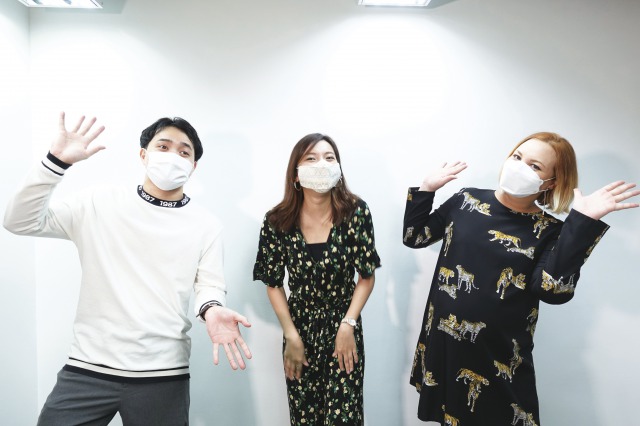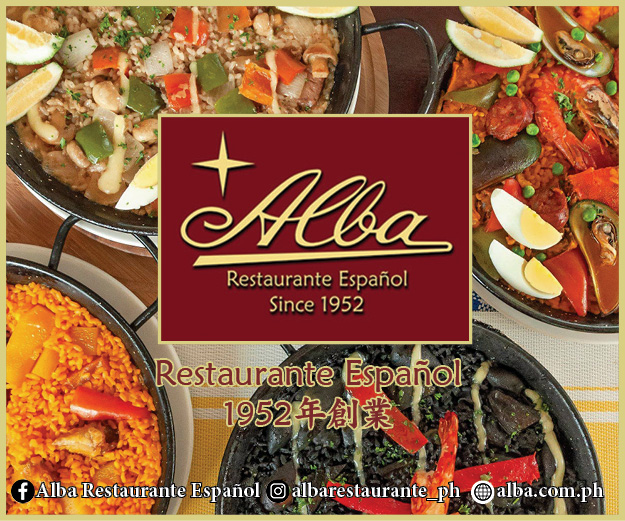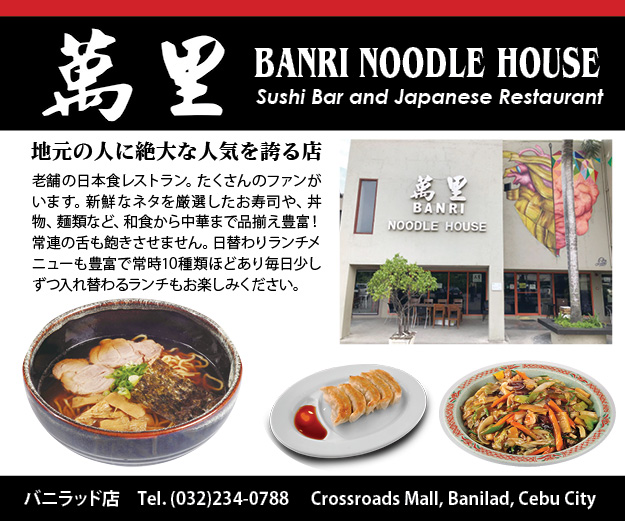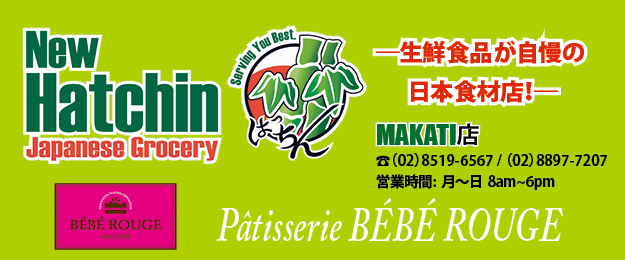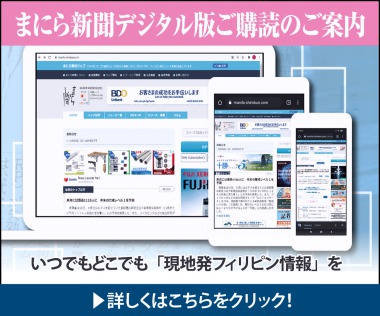【マニラで考える異文化コミュニケーション】
生まれながらに異文化を自分の中に持つ人たち。世間でいわゆる「ハーフ」と呼ばれる人たちは、自分の境遇に対してどのような思いを持っているのか。マニラに暮らす3人の方に聞きました。
Interview with Multicultural People
A multicultural person, who has different ethnic backgrounds, is often called a Hāfu (half) in Japanese . Three Hāfu people living in Manila share about their ethnic and cultural backgrounds and experiences.
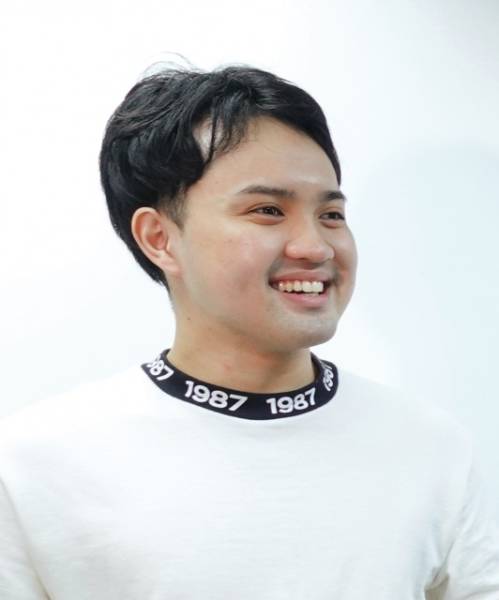
横田ジャン・リュックさん ファーイースタン大学(ホテルマネジメント専攻)在学中。実家はマカティ市リトル東京の「お好み焼き神楽」。名前は映画好きのお父さんがフランスの映画監督にちなんで命名。「アコースティックギターをコロナで再開しました。よく尾崎豊の曲を弾きます」 Jean Luc Yokota Far Eastern University student majoring in hotel management. His first name ‘Jean Luc’ is named after French film directors as his Japanese father likes movies. ‘I enjoy playing the acoustic guitar in my spare time during the pandemic.’
「ハーフ」と呼んで全く問題ありません。
―ご両親の出身は?
横田 母がケソン市出身のフィリピン人で、父は岡山出身の日本人です。
川崎 私も母がパンパンガ出身のフィリピン人で、父は東京出身の日本人です。
池田 母は南アフリカ生まれでノルウェーと、イタリア、イギリスの血を引いています。父が長崎生まれの日本人です。
What are your parents’ ethnic backgrounds?
Yokota My mother is Filipino from Quezon City and my father is Japanese from Okayama prefecture.
Kawasaki My mother is Filipino from Pampanga, my father is from Tokyo , Japan.
Ikeda My mother is from South Africa and descended from Norway, Italy, and Britain. My father is Japanese from Nagasaki prefecture.
―皆さんの出身地は?
横田 僕はフィリピン生まれで幼稚園はローカル、小学校と中学校は日本人学校、高校はインターナショナルスクールに通いました。
川崎 私は幼稚園までは東京の保谷市(現西東京市)にいて、小学校から今までずっと21年間フィリピン在住です。
池田 長崎市で生まれ育って、中学、高校の時に母とマニラで暮らしました。長崎にいる時、母の親友がフィリピン人だったんです。その後、南アフリカのケープタウン、東京を経てマニラに来たのは2011年です。
Where were you born and raised?
Yokota I was born and raised in the Philippines and went to a local kindergarten, the Japanese primary and junior high school and an international high school.
Kawasaki I was brought up in Tokyo until the age of five. I have been living in the Philippines for the past 21 years.
Ikeda I was born and raised in Nagasaki, Japan and moved to Manila with my mother when I was at a junior high. My mother had a good Filipino friend in Nagasaki. Having lived in Cape Town, South Africa and Tokyo, I came to Manila in 2011.
―ハーフという呼ばれ方についてどう思いますか?
池田 ダブルという呼び方もあるみたいですけど、これまで通り日本と外国のハーフでいいと思いますね。テレビでもハーフタレントとか、いい意味で使われていると思うので。
横田 これまで自分のことをフィリピンと日本のハーフと紹介してきたので、ハーフのままで問題ないと思います。
川崎 私もずっとフィリピンと日本のとハーフって言ってきたので、これからもハーフでいい。ミックスという言い方もあるようですけど、なんか犬の種類の呼び方のようで・・・・・・。「何人?」って聞かれて、ハーフなのにどっちか1つの国籍だけに答えを固めなきゃいけない感じの質問は嫌ですね。
How do you feel about being called Hāfu in Japanese’?
Ikeda Some call a Hāfu Japanese a ‘double’. But I think ‘Hāfu is not a derogatory word to us. A Hāfu Japanese is a positive image as Hāfu Japanese celebrities appear on TV.
Yokota I agree with her. I have introduced myself as a Hāfu and will keep on that.
Kawasaki I heard the word ‘Mix’ instead of ‘Hāfu. Mix’ sounds like a dog breed so I am more comfortable being called a Hāfu.
―国籍は?
川崎 日本国籍です。5歳まで日本人として育って、第1言語は日本語なので。父からも日本国籍をすすめられました。
池田 私も日本語が第1言語なので日本国籍を選びました。旅行が好きなので、日本のパスポートは海外旅行に有利ということも考えました。
横田 今はフィリピンと日本の二重国籍ですが、もうすぐ選択の年齢。やはり第1言語が日本であること、そして日本のパスポートを持つ方が何かと有利だと思うので、日本国籍を選ぶと思います。
What is your nationality?
Kawasaki I chose Japanese citizenship. I was raised as a Japanese and my first language is Japanese. My father also advised me to have a Japanese nationality.
Ikeda I also chose Japanese nationality in the light of my first language. I love traveling. Holding a Japanese passport is a privilege when traveling overseas.
Yokota I currently have dual citizenship of the Philippines and Japan but have to choose one soon. I will choose a Japanese citizenship when the time comes.
―何カ国語できますか?
池田 日本語と英語です。話すのも、読み書きも日本語の方がいいですね。タガログ語はだいたい聞き取れます。
横田 日本語、タガログ語、英語ができますが、タガログ語は読み書きはパーフェクトじゃないです。母も日本語を話すので会話は日本語とタガログ語のミックスですね。英語はインターナショナルスクールで習得しました。韓国人の友達も多いので今、韓国語を勉強しています。
川崎 私も日本語、英語、タガログ語を話します。あと大学で習ったドイツ語、イタリア語、スペイン語で歌うことができます。読み書きは英語かタガログ語の方がいいですね。子どもの頃、日本人の方によく「英語とタガログ語ができるんだから、日本語の読み書きは勉強しなくていいよー」と言われてその通りにしたんですが……。今、とても後悔してます。
What languages do you speak?
Ikeda Japanese and English. I prefer Japanese for reading and writing. I understand what a speaker says in Tagalog most of the time.
Yokota I speak Japanese, Tagalog and English, but my reading and writing skills in Tagalog are not perfect yet. I talk to my mother in Japanese and Tagalog. I acquired English proficiency at the international high school.
I now learn Korean because I have many Korean friends.
Kawasaki I also speak Japanese, Tagalog and English. I can sing in German, Italian, Spanish which I learned at college. I am not good at reading and writing in Japanese. When I was a child, many Japanese said to me, ‘ You don’t need to study Japanese writing and reading as you are a bilingual of Tagalog and English.’ I obeyed what they said, but I regret not having studied Japanese reading and writing.
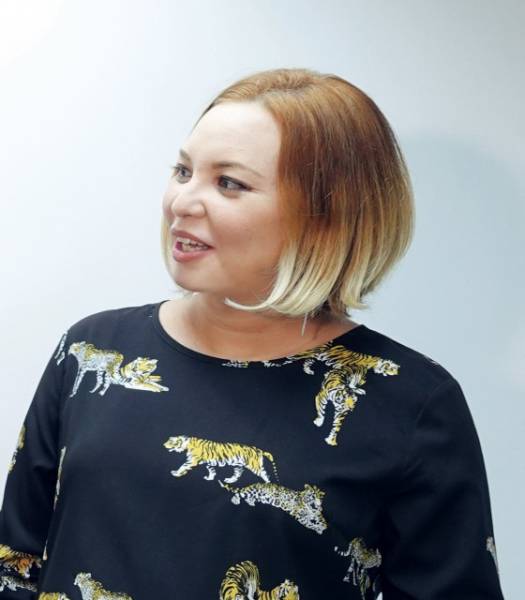
池田美幸さん 会社役員。今月10月に第1子を出産予定。「ネット通販のラザダでベビー用品を買いまくっています」 Miyuki Ikeda Director of a holdings company. Miyuki is due to give birth to her first baby right around the corner this October. ‘I enjoy a baby goods shopping spree on Lazada now.
いじめられたら、「喧嘩上等」。
―ハーフであることで嫌な思いをしたことは?
横田 小学校の時に容姿や文化の違い、日本語ができないことでからかわれたりしたことはありました。ローカルの幼稚園に通っていたので小学校に入った時は日本語ができず、3年生までは特別クラスで学びました。
川崎 日本にいた時はいい思い出ばかり。フィリピンに来てから12歳頃、自分のアイデンティティーに悩みました。父にフィリピン人みたいになるなと言われ、学校で日本とフィリピンを比べて、「日本の当たり前」を押し付けて友達をなくしたこともある。そんなことから根暗でネガティブな人間になった時期があります。あと、就職の時にバイリンガルとして採用されてから、日本語の読み書きが十分にできないという理由で、低い給料で働くことになったこともありました。
池田 長崎で小学校低学年の頃は、目が大きいおばけと呼ばれていじめられた。でも私はケンカが強かったから、いじめられることはなくなりました。
Did you have bad experiencesas you are a Hāfu?
Yokota I was made fun of in the primary school because of my appearance, cultural difference and poor Japanese language.
Kawasaki I had fond memories in Japan. After moving to the Philippines, when I was about 12 years old, I suffered from my identity crisis. I did not understand the cultural difference between Japan and the Philippines. I lost friends and became negative and pessimistic. When I was employed by a company as a bilingual speaking staff, I was paid less compared to the standard offers for the bilingual position due to my insufficient Japanese reading and writing skills.
Ikeda In the lower grades at a primary school in Nagasaki, I was bullied by being called a big-eyed ogre. But I was a great fighter and stopped the bullying.
―ハーフでよかったと思うことはありますか?
横田 子どものころは100%日本人じゃないことで、他人を妬んだこともありました。でも大人になってから考えが変わりました。ハーフでよかったと思います。小さい頃からフィリピンと日本の両方の文化を経験できたこと、国際的な共通語の英語を身に付ける環境で育ったのは恵まれていると思います。
池田 私の場合は、どの国に行っても現地の人だと思ってもらえること。フィリピンにいたら、フィリピン人、米国にいたら米国人だと思われて、すぐその国になじむことができるのがよかったと思う。
川崎 フィリピン人としても、また日本人としてもコミュニケーションができることは、ハーフとしての私の強み。またハーフであることで社会に出てから仕事の選択肢が広がったと思います。
Are you glad you are a Hāfu?
Yokota When I was a child, I was jealous of ordinary 100 % Japanese. But as I grow up , I realize I am glad to be a Hāfu, learning two different cultures and acquire a global language English in the Philippines.
Ikeda Yes, wherever I go, I am accepted like a local there. In the Philippines, people recognize me as a Filipino, in the US, people recognize me as an American. I can adapt myself to new environments well.
Kawasaki I can communicate with people as either a Filipino and a Japanese. It’s my advantage. As a Hāfu, I have more job opportunities.
―パートナーはハーフがいい?
横田 こだわりません。
川崎 昔はハーフがいいと思ってました。自分といろいろなことを分かち合えるのはハーフだと思ってたので。いろいろな人に出会って、自分と似た境遇の人にも出会ってからは、ハーフでなくてもいいと思うようになりましたね。大切なのはやはり人柄、異文化との向き合い方だなと。ただ、1つの国だけじゃなく、海外にも目を向けて、いろいろな国のことを知っている人がいいです。
池田 私は日本人と結婚しました。それまで外国人としか付き合ったことがなかったんですけど、やはり日本人と日本語で会話している方が楽なんですよ。私はテレビが大好きで、いっしょにテレビ見ててもあれこれ説明する必要がないのはいいなと。だから日本人と結婚しました。
Do you prefer a Hāfu person to be your partner?
Yokota I don’t mind at all whether my partner is a Hāfu or not .
Kawasaki There was a period when I preferred Hāfu as my future partner because we would had a lot in common. But now,
personality and the way of coping with cultural differences is more important.
Ikeda I got married to a Japanese national. I have dated some foreign nationals before, but I realized I felt more comfortable being with a Japanese partner and talking in Japanese. What I love is watching Japanese TV programes and most of all it was nice not to have to explain what is going on in the program and watch TV together.
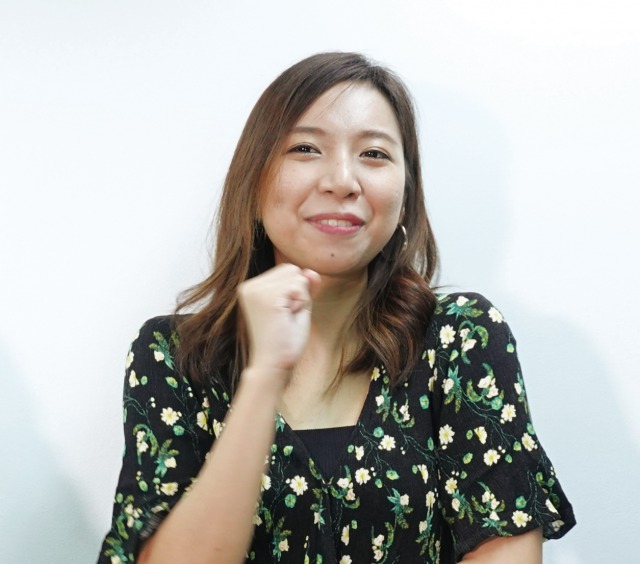
川崎真亜沙さん ナビマニチャンネル制作担当&MC。セント・スコラスティカ・カレッジ(声楽専攻)卒。実家はご存知「居酒屋 川崎」。「ゲーム『リトルナイトメア』全クリア達成しました!」 Maasa Kawasaki Video planning and MC, NaviMani Channel. St. Scholastica’s College College graduate bachelor’s degree in music performance major in voice. ‘I finally cleared all levels of the game Little Nightmare!’
ハーフがいて普通なのが、フィリピン。
―フィリピンはハーフの人に住みやすい国だと思いますか?
横田 明るく、誰でも受け入れてくれるフィリピンの国民性のおかげで住みやすいです。この先、海外での就職も考えていますが、フィリピンで就職して住むということも視野に入れています。
池田 東京からネガティブなストレスためたまま初めてフィリピンに来た時は、本当に楽しかった。私がハーフだからということとは関係なく、経済成長の一方で、おだやかでのんびりとしていたマニラの街も人も変わっていくのを見ると、ちょっと残念に思うこともあります。
川崎 フィリピンにはハーフが多いし、メスティサ、メスティソとして受け入れてくれる。学校ではクラスのマドンナ的な存在がハーフ。日本ではハーフっていうと「これ食べることできる?」「言ってることわかる?」と妙に気を使われる。その点、フィリピンはハーフがいて普通の環境なので住みやすいと感じます。
Is the Philippines a livable country for Hāfu people?
Yokota Yes, it’s because Filipino people welcome anyone. I think about working overseas in the future, but also consider finding a job and staying in the Philippines.
Ikeda When I came to the Philippines ten years ago from Tokyo, where I had a stressful life, I was very happy to be in Manila. However, I sometimes feel sorry now to see the laidback atmosphere of the city and people changing in exchange for its economic growth.
Kawasaki There are a lot of Hāfu in the Philippines and they are socially accepted as mestiza and mestizo. At most schools, the most popular girl in class is a Hāfu. In Japan, people are too careful with me, asking, ‘Can you eat this? and ‘Do you understand what I say?’ I feel comfortable to be in the Philippines.
Photographer: Sean Aleta









